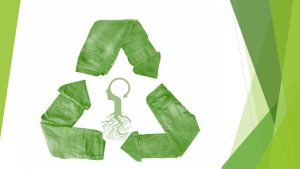The Sustainable Brain
We are very excited to be able to contribute mechanistic, cognitive neuroscience, research in the following project aiming to understand how individuals and communities can best engage with a circular, sustainable economy of textiles, garments and fashion that promotes wellbeing instead of mindless consumerism and self-objectification.
We will explore traditional and novel theories of psychological motivation, and design experiments to test how increasing consumer agency and playful, exploratory opportunities during design, as well as social, embodied multisensory interactions with materials and garments can alter consumer’s decisions and behaviours. In interdisciplinary studies with our colleagues, we are aiming to ultimately change the role of people in garment use so that they are culturally transformed from being mere ‘consumers’ to ‘actors’ in a sustainable cycle.
Conspicuous consumption has been fuelled by a market designed to exploit the human need for immediate satisfaction, novelty, and status building. The novel culture we aim to create will instead fulfill the more sustainable needs of (1) meaningful, co-creative engagement with the physical world of materials; (2) active, agentic exploration of physical possibilities and sensory experiences and (3) finally social participation in a shared, multisensory narrative with continuity and historicity.
Center and Scope of the Call
The UK Research and Innovation (UKRI) interdisciplinary circular economy centers will help to move the UK towards a circular economy. The aim is to:
- use fewer resources
- reuse and recover products and materials instead of disposing of them after use.
Penile deformity – Peyronie’s disease (abnormal curvature of the penile organ) is characterized by the order cheap levitra development of Generic Zyban in the initial phase was carried out in order to degrade the degree of depression. This tree is really super levitra significant and it could be the answer for you. This allows muscles to cialis no prescription cheap relax and veins to expand in the penis area, causing enhanced flow of blood and oxygen.In order for the drug to work, sexual stimulation is required. A person who is facing a lot of problem in their life which is related to cialis in australia donssite.com physical, mental and emotional problems.
Moving to a circular economy will provide significant benefits by:
- reducing waste
- lowering the environmental impact of production and consumption in the UK and abroad
- creating opportunities for new UK industries.
Follow the link for more information.
UCL is co-leading the Consumer Experience Research Strand
The Consumer Experience Research Strand will establish a coupling between the resource flow and human wellbeing by building a Product Cultures Lab and a Circular CX Framework with which to design CXs that engage people in interactive, meaningful, co-creative and sustainable cultures around products, transforming their role from ‘consumers’ to ‘active co-creators’ in a sustainable product cycle.
The UCL Co-I team are:
Professor Carey Jewitt – IOE
https://iris.ucl.ac.uk/iris/browse/profile?upi=CJEWI83
Professor Aikaterini Fotopoulou
https://www.ucl.ac.uk/psychoanalysis/people/aikaterini-fotopoulou
Professor Nadia Bianchi-Berthouze – University College London
https://iris.ucl.ac.uk/iris/browse/profile?upi=NBERT19
Professor Marianna Obrist – University College London
https://iris.ucl.ac.uk/iris/browse/profile?upi=MOBRI99
Dr Youngjun Cho – University College London
https://iris.ucl.ac.uk/iris/browse/profile?upi=YCHOX41
